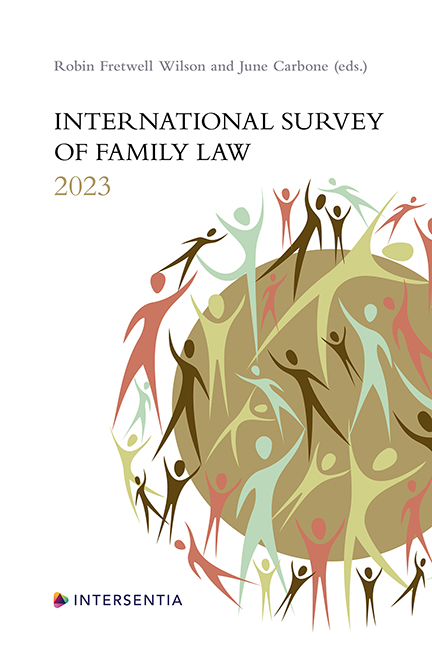An International Society of Family Law Remembrance
Published online by Cambridge University Press: 03 April 2024
Summary
I no longer remember what sort of notice I received, in 1982, announcing an International Society of Family Law World Conference that would take place at Harvard Law School in June. I had never heard of the International Society of Family Law. Even the subject of family law was new to me. I am pretty sure that the Spring 1982 semester was the first time I had ever taught the course, and I was still learning the basics. It was a period of tremendous upheaval in the field: no-fault divorce was gaining ground, gender-based roles and rules were disappearing, and both women and children were gaining new rights and entitlements. It was an exciting time in family law – that was a major reason why I had volunteered to teach a subject I had deemed too dull to study when in law school. The prospect of a conference bringing together family law scholars from around the world was immensely exciting. I sent in my registration form.
The conference was packed and immensely interesting. At this remove, I can no longer remember details, but I do recall meeting many fascinating people, and the constant sense of learning something new. Various presentations about the move to no-fault divorce also gave me an idea for an empirical research project that ultimately consumed years of my time, but I do not think I can blame the ISFL for that!
That exciting 1982 conference was my last ISFL experience for more than a decade. During those early days, there were no regional conferences – or at least there were none in North America – and other 1980s World Conferences took place in venues (Brussels, Tokyo, the former Yugoslavia) far more distant than Boston. By this point, I had young children and wanted to stay closer to home.
Sometime in, when? – 1993 or 1994 – a bright gold notice turned up in the mail. Its top border was decorated with an abstract design of peaks, and it announced a North American regional ISFL conference to take place at the Jackson Lake Lodge in the Tetons, in June. There were then no regular American events devoted to family law scholarship, other than the annual meeting of the Family Law section at the American Association of Law Schools.
- Type
- Chapter
- Information
- International Survey of Family Law 2023 , pp. 25 - 28Publisher: IntersentiaPrint publication year: 2023

